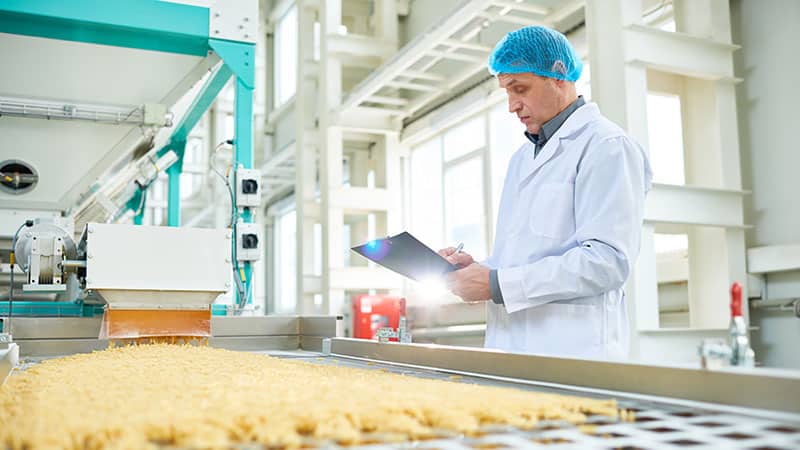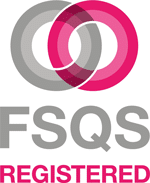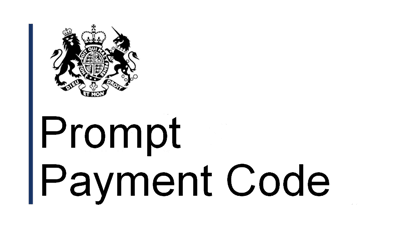By Sarah Eykelbosch, RQA Group Principal Consultant
Hear the words ‘food safety’ and the general public probably think of ‘Scores on the Doors’: Food Hygiene Ratings displayed at the entrance to restaurants and cafes following inspection by the local Environmental Health Officer; however this is only part of a larger story of food regulation in the UK. With so many aspects to keeping food safe, from farm to fork, a number of agencies work to ensure food sold in the UK is safe, accurately described and correctly labelled. This explains why your food business may have more than one touch point with food regulators such as the Department for Environment, Food and Rural Affairs (DEFRA), the Food Standards Agency (FSA), Environmental Health and Trading Standards, although this is not an exhaustive list, there are other sector specific regulators you might come across too.
DEFRA
The Department for Environment, Food and Rural Affairs (DEFRA) is the ministerial department with responsibility for protecting the environment and supporting food, farming and fishing industries. Through DEFRA’s Rural Payments Agency’s teams, such as the Livestock and Meat Inspectorate and Horticultural Marketing Inspectorate, they assure the provenance and quality of food.
FSA
The Food Standards Agency (FSA) in England, Wales and Northern Ireland and Food Standards Scotland (FSS) together provide national oversight on food safety matters. The FSA is a non-ministerial government agency with an overarching objective to protect public health from risks associated with eating food, achieving this through commissioning research, gathering intelligence, developing policy, providing guidance, coordination of alerts and recalls relating to food in the UK and addressing serious food crime through the National Food Crime Unit.
Food Safety at the Border
Officers at the Port Health Authority and Animal & Plant Health Agency undertake food safety work at our borders to monitor food imported into the UK, ensuring it is safe and accompanied by relevant paperwork. Last year, checks conducted by Officers at Suffolk Coastal Port Authority identified Salmonella mbandaka subspecies in a single consignment of 21,800 kg of cooked chicken and prevented it from entering the UK food chain[1]. On 30 April 2024 a new regime of checks was introduced for plants and products of animal origin (POAO) from EU countries in addition to existing checks for food of Non-EU origin.
Environmental Health
Environmental Health Officers focus on food hygiene: ensuring food is microbiologically safe and that good food handling practices such as hand washing, pest control, cleaning routines and temperature controls are observed in food businesses to prevent consumers suffering illness as a result of eating food. Environmental Health Departments investigate food complaints relating to foreign bodies in food and also administer the Food Hygiene Rating Schemes at a local level: awarding a Food Hygiene Rating after inspection to enable consumers to make informed choices about where they shop and eat.
Trading Standards
Trading Standards enforce food standards legislation at County Council level. Their work involves checking the composition of food (for example meat content to ensure the product is accurately described), authenticity, sampling for contaminants (such as heavy metals and mycotoxins in foods), ensuring the provision of accurate information about allergens and general food labelling compliance (NB. in Scotland and London Boroughs and some Unitary Authorities food standards work is undertaken by Environmental Health). Trading Standards also enforce fair trading, product safety and metrology legislation.
Labelling Issues
At the heart of food standards requirements are provisions to ensure food is accurately described and properly labelled. Despite current food labelling regulations[2] having been in place for almost 10 years, recent surveillance sampling conducted by local authorities identified labelling non-compliance in 7% of the samples that were otherwise satisfactory in terms of the food’s actual composition.[3] Non compliances range from: absence of information in English and reliance on a ‘fancy name’ for the food instead of a descriptive name which properly characterises the product to more technical matters for example incorrect presentation of nutritional information or categorisation of additives and, safety issues such as failure to identify or emphasise allergens.
Allergens
Identification and communication of allergens in food is a critical area of food safety work, with high profile examples of cross contamination leading to undeclared allergens being present in products with fatal consequences or poorly labelled products also leading to serious health risks and customer confusion. Download our recent Recall Bulletin for data on all recalls and specifically these allergen wrong product / wrong pack, “Never Event recalls[4].
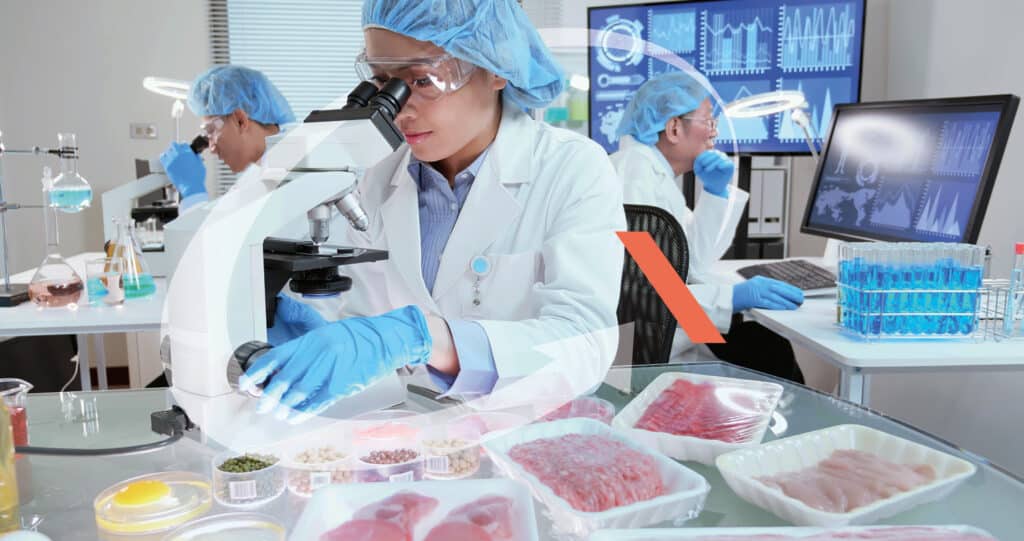
Does Vegan Mean Safe for Milk Allergy Sufferers?
Work carried out by the FSA found that over half of consumers buying food for a person with an allergy to products of animal origin (such as milk or egg) have used the term ‘vegan’ to inform their purchase[5], a worrying statistic given that testing by Hampshire and Kent Scientific Services found examples of vegan curry, pizza and cake containing undeclared milk. As a result, the Trading Standards Institute is calling for a legal definition for Vegan and Plant-Based food, to provide clarity for both businesses and consumers.[6]
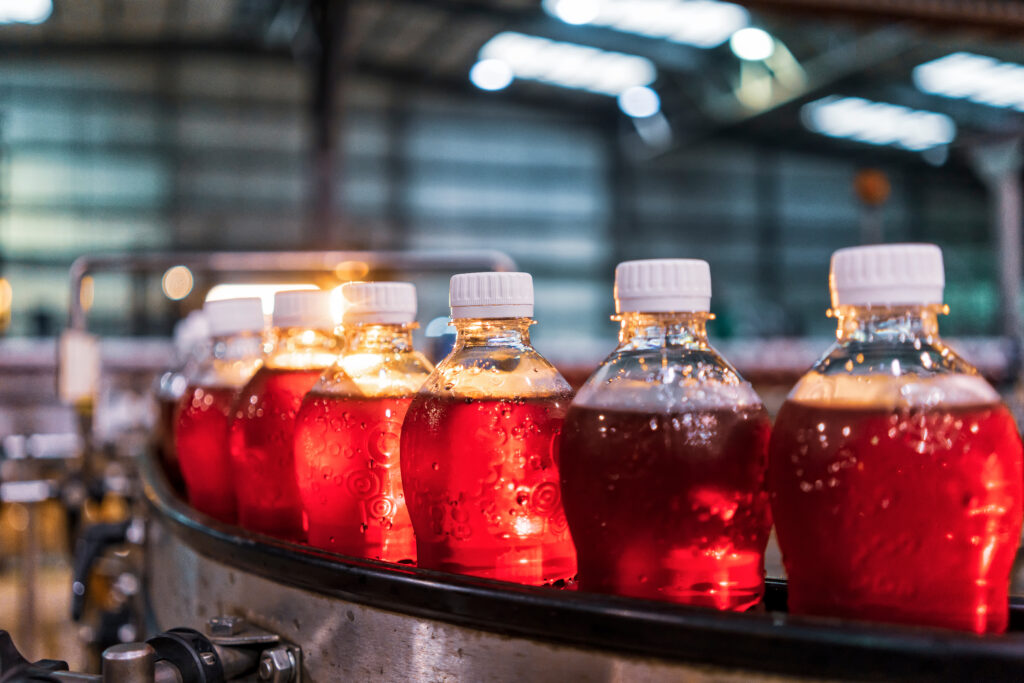
Food Authenticity and Food Fraud
Food authenticity is another area of work where regulators work to ensure both businesses and consumers get the product they have paid for and stay one step ahead of fraudsters who dilute or substitute a premium product with an inferior one: olive oil, basmati rice and herbs including oregano remain areas of focus.
Sometimes food is substituted with a safe but inferior product, however there have been examples of fraud involving compounds which render the product unsafe such as Sudan dye in chilli and turmeric and adulteration of cooking oil with industrial lubricants. Food businesses should undertake vulnerability and threat assessments of their supply chains to identify and address potential risks of adulteration and fraud.
Is a Safe Ingredient, Safe Everywhere?
Food authorities such as the FSA commission research upon which they base risk assessments about the safety and potential side effects of food ingredients and additives. This can mean an ingredient is considered safe and permitted in one country but not in another: a topical example, highlighted by inspections carried out by Trading Standards, is the presence of mineral oil and certain colours in sweets that are permitted to be used in sweets sold in the United States of America but not permitted in products on the market in the UK[7]: something to be aware of if you import food into the UK or trade across multiple jurisdictions.
Product Recall, “When not If”
Last, but by no means least, it is important that businesses have good visibility and traceability through their supply chains and put in place an incident management procedure to manage non-compliant products, including product recall. Too often, businesses get caught out thinking that it will never happen to them or that they will somehow manage in the unlikely event something happens. For the financial year 2022/23, the Food Standards Agency dealt with 2,038 food related incidents[8], of which 15% related to allergens, 6% were the result of absent, incomplete or incorrect food labelling and 5% were linked to the presence of non-permitted additives and colourings or excessive levels of these. Failure to have in place adequate procedures to manage recalls can have tremendous impacts on businesses and your consumers: with financial implications, but reputational consequences too.
Finally… If any of these examples resonate and you believe your business would benefit from support to achieve compliance; evaluate or provide reassurance of current compliance ; develop horizon scanning to maintain future compliance, or you require training or support in relation to recall, RQA Group’s multidisciplinary and international team of consultants can help.
[1]https://www.porthealth.uk/updates/salmonella-subspecies-causing-multi-country-outbreaks-found-and-destroyed-at-port-of-felixstowe/
[2]https://www.legislation.gov.uk/uksi/2014/1855/contents/made
[3]https://www.food.gov.uk/research/research-projects/surveillance-sampling-programme-0#:~:text=This%20project%20sampled%20retail%20food,intelligence%20on%20the%20food%20system
[4] Q1 Product Recall Bulletin 2024 is out now! – RQA Group (rqa-group.com)
[5]https://www.food.gov.uk/news-alerts/news/fsa-launches-campaign-highlighting-risk-of-food-labelled-as-vegan-to-people-with-allergies
[6]https://www.tradingstandards.uk/news-policy-campaigns/news-room/2024/ctsi-response-to-fsa-consumer-awareness-campaign-for-vegan-food/
[7]https://www.tradingstandards.uk/news-policy-campaigns/news-room/2023/banned-imported-american-candy-with-huge-child-appeal-and-worrying-side-effects-floods-the-uk/
[8]https://www.food.gov.uk/board-papers/incidents-and-resilience-annual-report-202223
